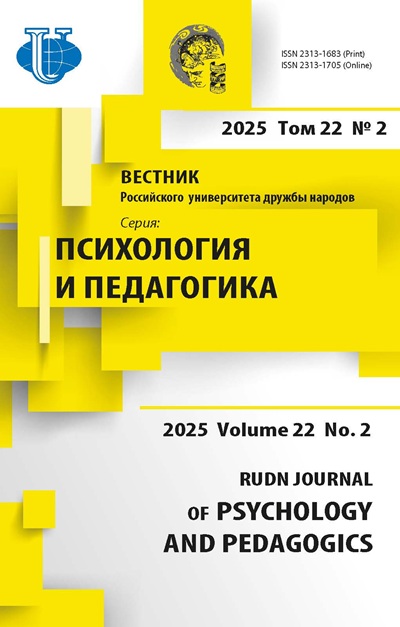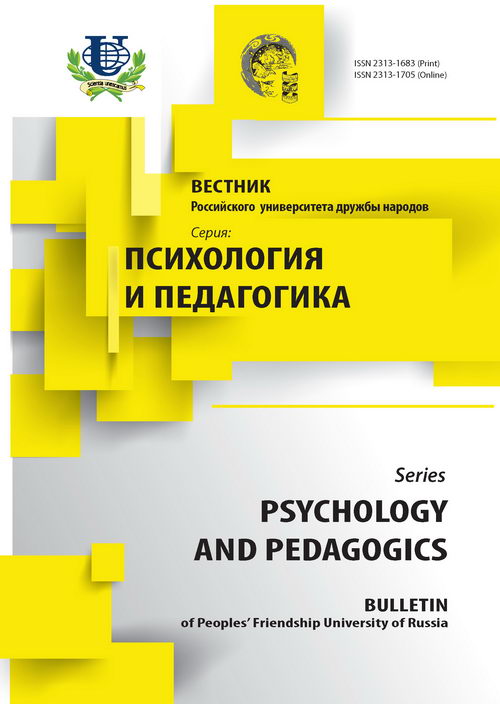ФОРМИРОВАНИЕ НАВЫКОВ ПЕРЕВОДА У СТУДЕНТОВ СО СРЕДНИМ УРОВНЕМ ВЛАДЕНИЯ РУССКИМ ЯЗЫКОМ: АНАЛИЗ ОПЫТА УНИВЕРСИТЕТА ГАНЫ
- Авторы: Алберт А.1
-
Учреждения:
- Кафедра современных языков Университет Ганы
- Выпуск: № 1 (2016)
- Страницы: 113-118
- Раздел: Статьи
- URL: https://journals.rudn.ru/psychology-pedagogics/article/view/13417
- ID: 13417
Цитировать
Полный текст
Аннотация
В статье рассматриваются начальные этапы формирования основных навыков перевода у студентов со средним уровнем владения русским языком (уровень 200). Для достижения цели применяется «учитель-ученик»-ориентированный подход и основы теории эквивалентности. Целью работы является повышение уровня владения языком одновременно с формированием навыков перевода у студентов среднего уровня (intermediate), изучающих русский язык в университете Ганы. Исследование организовано так, чтобы сформировать у студентов основные навыки перевода. Основная цель - развитие двуязычной компетенции, прежде всего, на уровне письменного, а затем и устного перевода. Рассмотрены основные навыки, без овладения которыми невозможно приступать к обучению переводу. Основные исследовательские задачи: 1) рассмотреть начальные этапы формирования и развития навыков перевода у студентов со средним уровнем владения русским языком; 2) определить основные языковые навыки, необходимые для того, чтобы выполнить правильный перевод; 3) подобрать языковой материал, связанный с реальной студенческой жизнью, для облегчения процесса формирования навыков перевода. На основе опыта формирования основных навыков перевода у студентов среднего уровня владения русским языком, обучающихся в Университете Ганы, сделан вывод о том, что использование «учитель-ученик»-ориентированного подхода позволяет получить приемлемые результаты.
Ключевые слова
Список литературы
- Appel R., Muysken P. Language Contact and Bilingualism. London: Edward Arnold, 1987.
- Bloomfield L. Language. New York: Holt, 1933.
- Brennan S., Clark H. Conceptual Pacts and Lexical Choice in Conversation. Journal of Experimental Psychology: Learning, Memory and Cognitive, 1996, no 22 (6), pp. 1482-1493.
- Croft W., Cruise, D.A Cognitive Linguistics. Cambridge, U.K: Cambridge University Press, 2004.
- Crose B. Internationalization of the Higher Education Classroom: Strategies to Facilitate Intercultural Learning and Academic Success. International Journal of Teaching and Learning in Higher Education, 2001, no 23 (3), pp. 388-395.
- Goldberg A.E. Constructions: A construction grammar approach to argument structure. Chicago: Chicago University Press, 1995.
- Halliday M.A.K., Mclntosh A., Strevens P. The Linguistics Sciences and Language Teaching. London: Longman, 1964.
- Haugen E. Bilingualism in the Americas: A Bibliography and Research Guide. Alabama: University of Alabama Press, 1956.
- Langacker R. Cognitive Grammar: A Basic Introduction. Oxford: Oxford University Press, 2008.
- Langacker R. Foundations of Cognitive Grammar. Vol. 1. Stanford. C.A.: Stanford University Press, 1987.
- Leibowitz B. What is Inside the Suitcase? An investigation into the powerful resources students and lecturer’s bring to teaching and learning. Higher Education: Research and Development, 2009, no 28 (3), pp. 261-274.
- Tyler A. Cognitive Linguistics and Second Language Learning: Theoretical Basics and Experimental Evidence. Routledge, 2012.
- Whannell R., Allen B., Lynch K. Casualties of Schooling? 18-22 years old students in tertiary bridging program. Australian Journal of Tender Education. 2010, no 35 (5), pp. 1-17.
Дополнительные файлы















